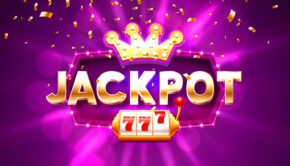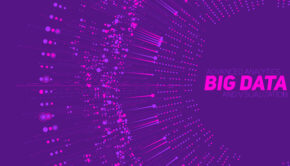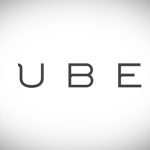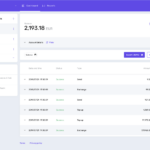5 Things to Consider before Hiring a Product Designer
Product design is a relatively young specialization that managed to gain significant importance and popularity in the design market. Nowadays, product designers shift the focus from the UI and UX to a more general approach to the product.
As far as the profession is new and demanding, many employers face the problem of hiring a proper specialist. Firstly, there exists a lack of personnel. And secondly, specificity and certain obscurity of the job confuse people, making them search for the wrong things in applicants.
So, let’s find out who is a product designer and what we should look at to hire an experienced and useful specialist.
Mind the Difference between the UI/UX and Product Designers
As we have once mentioned before, the first and the most widespread mistake of many employers is the misunderstanding of the job specifications and duties. Mainly, a lot of educated and experienced people confuse UI/UX design and product design.
So, UX design, which stands for User Experience, is responsible for the analysis of the product’s interface, functionality, and simplicity. UX designers also study users` habits and related users` impressions that certain software or app provokes.
UI design, which stands for User Interface, revises and rethinks the data collected on the first stage of the UX analysis. On the basis of this information, UI designers realize and visualize users` preferences. They create as convenient, attractive, and functional product as possible.
So, while UX and UI are two sides of the same coin, product design represents the next stage of design development. Product designers are universal experts who literally see the whole product and not its parts. They deal with both the appearance and the logic of the app and often communicate with UX/UI specialists. Complete project support from the stage of idea to its implementation and feedback gathering – that’s what they actually do.
Product designers can take part in the development, but their main duty is a more in-depth analysis of the market and its demands as well as the solution of definite tasks. They also need excellent IT education, graphic design, and a lot of theoretical knowledge in marketing and researching.
So, schematically, the job of a product designer consists of several stages:
- Identification of the problem;
- Problem analysis;
- Drawing of several possible solutions;
- Test implementation of concepts;
- Reanalysis;
- Product refinement.
Pay Attention to Knowledge of Business Strategies and Analytical Skills
Now, when we determine clear borders of this profession, it’s time to speak about your future employees’ more specialized knowledge and experience.
Since product design is one of the highest-paid jobs in the modern labor market, you’ll pay big money for your specialist’s services. Consequently, you have all the rights to demand certain education and skills.
First of all, proper applicants should have a thorough knowledge of business strategies. When your product designer understands your business processes, he/she will help you see the problems, find several working solutions, and choose the best one. Business strategy helps lay the foundation of the future product and form the idea.
The next essential requirement is analytical thinking. Thus, specialists collect data about users, their needs, and experience of interaction with similar products. Based on these data and analysis, product designers continue the idea’s development and create a test plan, start prototyping, and form a working product concept.
As you see, such deep knowledge requires significant working experience. So, please read all resumes attentively. Look for the above-mentioned skills that are proven by successful projects and at least 3 years of working experience.
Ask about Knowledge of Special Software
The work of product designers doesn’t end on the stage of strategy and analytics. A specialist cannot be called a specialist without knowledge of specific software and tools necessary for the implementation of the product.
Please remember that the list of software and tools may vary depending on the project and your needs. However, the majority of hirers look for experience with the following programs:
- CAD is a must for all designers since this software significantly speeds and improves the creation of designs.
- Often, projects require 3D modeling. So, if your product development needs such tools, look for product designers who know The Brush, Autodesk 3ds Max, Autodesk Maya, etc.
- Such popular graphics editors like Illustrator, Sketch, Inkscape, etc. are obligatory tools for designers, including product design specialists.
- For specific positions and tasks, you may also need your designer to know basic programming skills. It means the knowledge of programming languages, libraries, and tools.
Check Artistic Talent and Education

We cannot imagine a designer without appropriate education and artistic gift.
First of all, the knowledge of graphic design is the basic thing that makes designer being designer. This skill can be achieved in different ways, the most welcomed and qualified of which are higher education in universities` programs or specialized courses.
The ability to work with colors and color schemes is another crucial moment. Product designers should know how to use and mix various colors to create the necessary impression. Though it may seem surprising for many, with the help of colors, you can achieve a lot of goals and influence people. So, the knowledge of color theory is a must if you want to make your product as pleasant for users and efficient for yourself as possible.
Also, try to pay attention to the visualization skills of your applicants. Since product designers create ideas and need to implement them, people with visualization talent will make it faster and better than those without such a gift.
If you wonder how to check these skills, we recommend you to ask candidates to bring their portfolios and previous projects. You can also ask them to pass some tests.
Don’t Forget about Soft Skills
Though hard skills are considered to be more important for successful work, many employers pay special attention to soft skills. They’re absolutely right since soft skills contribute to personality and product development.
Here is the list of skills and abilities welcomed in every employee:
- communication skills;
- ability to work in a team;
- time management skills;
- ability to ask for feedback;
- attention to details;
- perseverance;
- constant self-development;
Indeed, the search for an experienced and reliable product designer is a rather complicated task. However, if you try to highlight your main requirements for applicants and make a simple search plan, you will see that it’s not such a big problem. It’s also a great idea to ask your colleagues for advice or contact professional recruiting agencies.
We hope you found these tips useful! And we wish you good luck and excellent employees!















